I was talking to a musician the other day, of which I mentioned I've started recording classical/acoustic music, and he's interested in having me eventually record some of his band's tracks. I told him I haven't recorded anything electric yet but wanted to start and I'll probably get together with them over the course of the next several weeks and couple of months.
Reading books has been my primary educational source to get things started, of course in addition to forums and also talking with locals. So being an absolute beginner of starting to record electric music, can you recommend some well-written, informational books that would give a good foundation to the basics of this type of recording, including all of the equipment in the chain, mic techniques, amps, DI boxes,mixers,etc. all that.
Some that I'm considering are these from amazon. Has anyone read them? Any ideas or other recommendations?
- Audio Recording Bootcamp http://www.amazon.c…
- Audio Engineering 101 http://www.amazon.c…
- Modern Recording Techniques http://www.amazon.c…
- Recording Secrets For the Small Studio http://www.amazon.c…
Comments
Thanks for sending that list Sean. All great resources I made no
Thanks for sending that list Sean. All great resources I made note of for future reads. I might start with something like the Instrument and Vocal Recording book there, also another one I noticed was this for beginners setting up a studio
http://www.amazon.c…
I'll check that out. It does look like a great resource. Anoth
I'll check that out. It does look like a great resource. Another list I saw today was http://blog.rfvenue…
for anyone else reading this and researching too.
Aaron, post: 437367, member: 48792 wrote: Reading books has been
Aaron, post: 437367, member: 48792 wrote: Reading books has been my primary educational source to get things started, of course in addition to forums and also talking with locals.
First of all, I'll say that I'm a strong proponent for education and gaining knowledge - no matter what your field is.
Books can be a great foundation; but they'll only take you so far - at some point you'll have to actually apply what you've learned in a real time scenario, to actually hear how the processes and workflows you've read and learned about will sound.
There's so much to learn about the craft, and while I always encourage continuing education for what we all do, (and I mean for all of us, regardless of how little or long we've been doing it...I learn new things all the time, and don't ever want to stop learning, either), ultimately, the best way to learn is to actually do it, and learn from both your successes and your mistakes.
Some important facets to know:
Gain structure is a biggie. Pretty much anyone can be taught to print a signal to a DAW (or to tape), but learning how to do it right, knowing where your signal is going ( routing), what is happening to the signal through every gain stage ( gain stage and processing), and getting that signal to its ultimate destination, and in the best-sounding way possible, is paramount.
Mic choice, placement and multi-mic technique are very important things to learn; I consider these to be "mission critical"... and the best way to learn these things is by recording actual instruments, vocals, drums and amps. This is a crucial step - even in this day of VSTi's/Samples. Your tracks will only ever sound as good as the way they are recorded to begin with.
EQ is another... train your ears to pick out certain frequencies (and ranges). Learn about Hi and Lo-Pass filters, shelving, Q, and boost/cut. This will all prove invaluable to you.
Gain Reduction - the most important thing about this type of processing is to learn how it truly works, what it really does - and just as importantly, what not to do with it, and how to not use it.
Finally, if you are in charge of the tracking phase of a project, as well as the mix stage, don't ever let yourself subscribe to the "I'll just fix it in the mix" mindset.
Pay attention to how the tracks sound as they are being recorded, get the best quality you can from step one. You'll save yourself a lot of hair-pulling frustration, and the project will be much easier to mix, and will sound infinitely better.
And, even if you are responsible for tracking only, and it's going to be mixed by someone else, make sure you do the next engineer a solid, and give them the best sounding tracks you can.
"Fix it in the mix" is a bush league approach, it's lazy, and it's the sign of a hack. Getting things to sound right as they are recorded is what separates the pros from the wannabees.
FWIW. ;)
-donny
DonnyThompson, post: 437416, member: 46114 wrote: "Fix it in t
DonnyThompson, post: 437416, member: 46114 wrote:
"Fix it in the mix" is a bush league approach, it's lazy, and it's the sign of a hack. Getting things to sound right as they are recorded is what separates the pros from the wannabees.
{like. so concise.}
Speaking of getting it recorded correctly from the start...I just spent the better part of a week tracking my grand piano to fit into a mix with a bass; a guitar; and drums. And while it sounds fine, I sure wish I would have had those 2 mics about another foot and a half back. It things like that, that someone like an Al Schmitt would likely immediately recognize and have the correct depth/width for mic placement on the piano right from the start. Those wise, old, experienced guys have a vision of what they are after right from the start - and know exactly how to get it done. I think I had that vision and got the width right on, it's just that I underestimated the ability of my grand to cut thru this mix and it ended up just a smidgen more "upfront" than I had hoped for. At the same time, I'm getting back into this after a long lay-off so I'm still knocking some rust off.
And while I can try to fix this in the mix, I know from past experience with grand pianos that it is not going to sound completely natural if I do try to move it back in the mix (without re-tracking), so I've elected to keep it the way it is. Next song I'll get it right!
I guess it's just my long-winded way of saying, "get it correct from the start".
Speaking of books, I think there was a guy that went into some depth on micing/tracking. I think his name was Senior but I don't remember the exact book.
JayTerrance, post: 437425, member: 49019 wrote: {like. so conci
JayTerrance, post: 437425, member: 49019 wrote: {like. so concise.}
Speaking of getting it recorded correctly from the start...I just spent the better part of a week tracking my grand piano to fit into a mix with a bass; a guitar; and drums. And while it sounds fine, I sure wish I would have had those 2 mics about another foot and a half back. It things like that, that someone like an Al Schmitt would likely immediately recognize and have the correct depth/width for mic placement on the piano right from the start. Those wise, old, experienced guys have a vision of what they are after right from the start - and know exactly how to get it done. I think I had that vision and got the width right on, it's just that I underestimated the ability of my grand to cut thru this mix and it ended up just a smidgen more "upfront" than I had hoped for. At the same time, I'm getting back into this after a long lay-off so I'm still knocking some rust off.
And while I can try to fix this in the mix, I know from past experience with grand pianos that it is not going to sound completely natural if I do try to move it back in the mix (without re-tracking), so I've elected to keep it the way it is. Next song I'll get it right!
I guess it's just my long-winded way of saying, "get it correct from the start".
Speaking of books, I think there was a guy that went into some depth on micing/tracking. I think his name was Senior but I don't remember the exact book.
Probably Mike Senior...website here: http://www.cambridge-mt.com
JayTerrance, post: 437425, member: 49019 wrote: It things like t
JayTerrance, post: 437425, member: 49019 wrote: It things like that, that someone like an Al Schmitt would likely immediately recognize and have the correct depth/width for mic placement on the piano right from the start. Those wise, old, experienced guys have a vision of what they are after right from the start - and know exactly how to get it done.
Take heart, though, Jay... those wise old guys got that way by learning how to not do certain things over time ... and they learned it that way by making the exact same mistakes along the way that you, me and every other engineer here has at some point. ;)
I'm of the age that meant visiting my local library was the only
I'm of the age that meant visiting my local library was the only way to get technical information, and over the years, most of it was a really good foundation that meant I was prepared for things I'd never done before. However, some books really didn't work for me. Too complex, or too superficial.
I'm not sure what it's like where you are, but my own local library has a budget to buy new books, but rarely spends it - and are willing to order books in. I have always borrowed books from the public library, and then bought the ones that were useful. Nowadays with the net, Amazon often has free pages so you can estimate the technical standard and see the style.
If you are looking at classical recording and acoustic recording in bigger spaces - the best online source of solid technical content in my opinion is here http://www.dpamicro…
So much really useful stuff - especially the different stereo techniques pages.
One of the most useful things I have learned is to spot rubbish advice that looks good, and that takes experience - to reject recommendations.
Aaron, post: 437367, member: 48792 wrote: I was talking to a mus
Aaron, post: 437367, member: 48792 wrote: I was talking to a musician the other day, of which I mentioned I've started recording classical/acoustic music, and he's interested in having me eventually record some of his band's tracks. I told him I haven't recorded anything electric yet but wanted to start and I'll probably get together with them over the course of the next several weeks and couple of months.
Reading books has been my primary educational source to get things started, of course in addition to forums and also talking with locals. So being an absolute beginner of starting to record electric music, can you recommend some well-written, informational books that would give a good foundation to the basics of this type of recording, including all of the equipment in the chain, mic techniques, amps, DI boxes,mixers,etc. all that.
Some that I'm considering are these from amazon. Has anyone read them? Any ideas or other recommendations?
- Audio Recording Bootcamp http://www.amazon.c…
- Audio Engineering 101 http://www.amazon.c…
- Modern Recording Techniques http://www.amazon.c…
- Recording Secrets For the Small Studio http://www.amazon.c…
I haven't read any of the ones you've listed, these two are invaluable. Both easy to understand, and practical in a sense where you can keep them right with you next to the console or at the session, if you need to refer. There's some step by step things, and some general info. Highly recommended. The recording book, has mic positioning, and techniques for over 100 different instruments. Both by Bobby Owinsky.
The mix engineering book is quite interesting because it firmly
The mix engineering book is quite interesting because it firmly sits on the US side of the mixing fence, and is often handy here in the UK to emphasise where we do things differently - which I think, is good. The differences can be subtle, but viewpoints do differ - the British preference when stereo was developing, for instance. The BBC loved Blumlein techniques, but they were less favoured in the US. The book sits firmly with US preferences. Not bad, of course, but not a book we'd use as a single guide here, of course.
paulears, post: 437433, member: 47782 wrote: The mix engineering
paulears, post: 437433, member: 47782 wrote: The mix engineering book is quite interesting because it firmly sits on the US side of the mixing fence, and is often handy here in the UK to emphasise where we do things differently - which I think, is good. The differences can be subtle, but viewpoints do differ - the British preference when stereo was developing, for instance. The BBC loved Blumlein techniques, but they were less favoured in the US. The book sits firmly with US preferences. Not bad, of course, but not a book we'd use as a single guide here, of course.
I had no idea that there was a "side of the fence" in term of methods. That's interesting.
We had quite a bit of trouble with the book list for UK college
We had quite a bit of trouble with the book list for UK college courses. There's obvious differences in language, jargon, and measurements - but there's a definite 'Britishness' to how we do some things. The BBC, EMI and Abbey Road studios in particular have had a big influence on traditional studio practice. I guess it has become more international but UK, and perhaps even European influences are creeping in. Things like ORTF mic techniques, once rare here, they're now occasionally creeping in, and of course the variations between similar techniques get blurred. The broadcasters in the states had, I'm told, similar influences on US practice. Blumlein techniques were a big influence. In the US, Blumlein always (from the books I've read over the years) got a mixed reception, with people uncomfortable about a perceived hole in the middle where imaging was a little imprecise, but I personally rather liked how it works in nice spaces. In the 70s, we had real practical problems when people started mixing in American equipment because the polarity of much US equipment was reversed to our practices. My own experience with my band listening to the Beach Boys compared to the Beatles, and the other 60's UK bands. Even with just 4 tracks, the studios themselves sounded different, and this I think carried on through the 70s. I suspect it's lots of tiny things.
On the jargon side, there are obvious differences, but they're even there in radio techniques. UK radio always sounds different to US radio. The mics and the studio acoustics are different. US stations liked the Shure/EV type of sound while we didn't.
Book wise - one US book that is popular here is this one:
http://www.amazon.c…
There is a VERY British youtube video here that American members might smile at for so many reasons!
I can relate to this...coming from, with all due respect of cour
I can relate to this...coming from, with all due respect of course, one of "the colonies"...LOL
Not withstanding the fact that I probably have a position where I see things from the viewpoint as mentioned above, "both sides of the fence..." ( stay with me here 'yall...)
Having that exposure to all things "British" from the "Mother Country", but also having an influence of all things from the US in respect of the aspects of Rock 'n Roll, its origins, and its US influence... so I can see where you are coming from paulears ...and also from your DonnyThompson perspective as well.
( Talk about caught between a rock and a hard place....sheeesh !!!!) :D
paulears, post: 437438, member: 47782 wrote: We had quite a bit
paulears, post: 437438, member: 47782 wrote: We had quite a bit of trouble with the book list for UK college courses. There's obvious differences in language, jargon, and measurements - but there's a definite 'Britishness' to how we do some things. The BBC, EMI and Abbey Road studios in particular have had a big influence on traditional studio practice. I guess it has become more international but UK, and perhaps even European influences are creeping in. Things like ORTF mic techniques, once rare here, they're now occasionally creeping in, and of course the variations between similar techniques get blurred. The broadcasters in the states had, I'm told, similar influences on US practice. Blumlein techniques were a big influence. In the US, Blumlein always (from the books I've read over the years) got a mixed reception, with people uncomfortable about a perceived hole in the middle where imaging was a little imprecise, but I personally rather liked how it works in nice spaces. In the 70s, we had real practical problems when people started mixing in American equipment because the polarity of much US equipment was reversed to our practices. My own experience with my band listening to the Beach Boys compared to the Beatles, and the other 60's UK bands. Even with just 4 tracks, the studios themselves sounded different, and this I think carried on through the 70s. I suspect it's lots of tiny things.
On the jargon side, there are obvious differences, but they're even there in radio techniques. UK radio always sounds different to US radio. The mics and the studio acoustics are different. US stations liked the Shure/EV type of sound while we didn't.
Book wise - one US book that is popular here is this one:
http://www.amazon.c…There is a VERY British youtube video here that American members might smile at for so many reasons!
It's funny because, the British Invasion was Brits doing American music, better than Americans!!!! There's a definite difference in eq curve from modern brit and American (non electronic) recordings. I find brit mixes more mid focused with more liberal use of reverb.
It's amazing to me, that the Beatles thought American gear was ahead of abbey road at the time, which it technically was, but now so long after, it's the British less technological sound that people chase, more so than the "8/12track American sound" of the day.
The sound reinforcement handbook is a good read, although perhaps a bit above the beginner/intermediate level, I know I don't understand the whole thing. I got the feeling the OP was looking for more of a 'how to'. The Yamaha book is a definite must read for any serious enthusiast/professional.
Interesting thoughts about brit mic placement Ect, I never really thought about it like that.
kmetal, post: 437442, member: 37533 wrote: It's funny because, t
kmetal, post: 437442, member: 37533 wrote: It's funny because, the British Invasion was Brits doing American music, better than Americans!!!! There's a definite difference in eq curve from modern brit and American (non electronic) recordings. I find brit mixes more mid focused with more liberal use of reverb.
It's amazing to me, that the Beatles thought American gear was ahead of abbey road at the time, which it technically was, but now so long after, it's the British less technological sound that people chase, more so than the "8/12track American sound" of the day.
paulears kmetal pcrecord @Sean G audiokid Boswell Davedog dvdhawk
Personally, I think it'd be a GAS to have all of us to be in the same studio ( fully loaded, of course, with the best of British, Canadian, Austrian and American gear; and a hybrid of all the individual trick-bag tracking and mixing methods we all know ) and all working on a project together. That would be an educational experience that I'd give a kidney and a lung for. Seriously.
And I'm open for anything. I don't need to be in charge. Hell, I'll even be an A.E. for you guys - I make awesome coffee.... Just as long as we can all agree to use a desk that isn't numbered backwards from R to L. LOL...
We'd either all be responsible for instantly voiding all NATO treaties and starting WW3 ... or ... we would turn out some ultra, killer, awesome tones. ;)
The scariest thing I ever had to do in a studio was write and re
The scariest thing I ever had to do in a studio was write and record a track with a load of famous in their field characters. We had engineers, producers, musicians and even business people - and we'd been refused permission to use a well known track for an exam. The only solution was to produce our own. One of the guys was somebody I used to go to see as a punter - a well known guitarist. The sax player I had to play alongside was a session guy from many famous recordings and everyone (bar me it seemed) was an expert. It was actually really good. The English engineer had his own rather unique drum miking technique, the main singer - from a well known 70s/80s band insisted on using a ribbon mic with TWO people singing into it face to face - because it gave them a good feel together, and it wasn't an ego clash, just weird, but amazingly fast start to finish.
I'd love to do something similar with the guys from this forum. It would be really good, and I know I'd pick up stuff I'd not thought about!
P
DonnyThompson, post: 437444, member: 46114 wrote: @paulears @kme
DonnyThompson, post: 437444, member: 46114 wrote: paulears kmetal pcrecord @Sean G audiokid Boswell Davedog dvdhawk
Personally, I think it'd be a GAS to have all of us to be in the same studio ( fully loaded, of course, with the best of British, Canadian, Austrian and American gear; and a hybrid of all the individual trick-bag tracking and mixing methods we all know ) and all working on a project together. That would be an educational experience that I'd give a kidney and a lung for. Seriously.
And I'm open for anything. I don't need to be in charge. Hell, I'll even be an A.E. for you guys - I make awesome coffee.... Just as long as we can all agree to use a desk that isn't numbered backwards from R to L. LOL...
We'd either all be responsible for instantly voiding all NATO treaties and starting WW3 ... or ... we would turn out some ultra, killer, awesome tones. ;)
You know I had a similar thought only a few weeks back...wouldn't it be great if we could all meet up somewhere where we could all be in the same studio for a week or so...
Like an RO vacation with a purpose to track and record a killer song, with everyone contributing in their own unique way.
I know that the world is a smaller place than it was say 50 years ago with better communication methods being the thread that binds us all, it is a shame that the tyranny of distance and costs prevents that from happening.
Wow, what a brains trust it would be in that room at that time if it ever was to come to fruition. I'd pay to just be a fly on the wall if nothing else.
Sean G, post: 437472, member: 49362 wrote: we could rent 461 Oce
Sean G, post: 437472, member: 49362 wrote: we could rent 461 Ocean Boulevard Golden Beach, Florida for a week.
Well at least you're on the right track and keeping the location warm. ;)
I was thinking Ocean Way ( or whatever it's called now) - JJ Puig has been kinda calling that his home base in recent years, simply because of the vast amount of 5 star mics and OB gear that it has in its inventory.
But hey... I'm not picky. I can make great coffee for the rest of you guys anywhere...
( although you blokes across the ocean are gonna need to clue me in on how to make good tea). :)
Abbey Road, or Gabriel's Real World is just fine and ducky with me, too.
And for that matter.. keeping the choice to warmer climes, Criteria would be nice, too. ;)
So, I'll let you guys decide; Abbey Road and Secret World are more "austere" than Ocean Way and Criteria are; but I don't doubt for a second that any of these places would serve our needs quite nicely:
Ocean Way:
Criteria ( Now The Hit Factory, Miami):
Abbey Road:
kmetal, post: 437488, member: 37533 wrote: ....drool.... Love t
kmetal, post: 437488, member: 37533 wrote: ....drool.... Love the natural light of Peter Gabriel's place.
While I dig all the toys that Ocean Way has... it looks like it'd maybe be a tough place to work long hours in after awhile; because it lacks natural light, it gives off a real isolatory vibe.
More pics of Gabriel's place....
I remember first seeing this studio on the cover of Mix back in the 80's; and being impressed because it was the first control room I'd ever seen that had a beautiful natural light to it, and it wasn't a dimly lit cave - with no windows - as so many other studios were at the time.
I have no idea how they made the room work acoustically, with all the reflective surfaces; my hunch is that it's all about the construction. I'm sure that Brien ( @Brien Holcombe ) would be able to explain.
audiokid, post: 437521, member: 1 wrote: I want. See, for guys
audiokid, post: 437521, member: 1 wrote: I want.
See, for guys like Chris and I, we're not only looking at the studio, we're also looking at that pond just outside the control room; and wondering if perhaps Peter might have stocked it with some trout... ;)
I'll bring a couple pieces of audio gear - but I'm packing my fly rod too. LOL







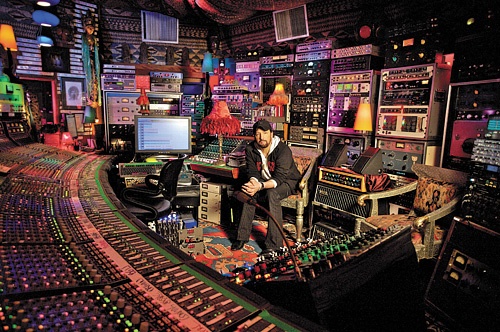
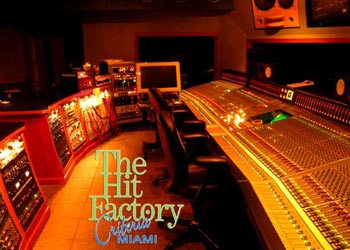
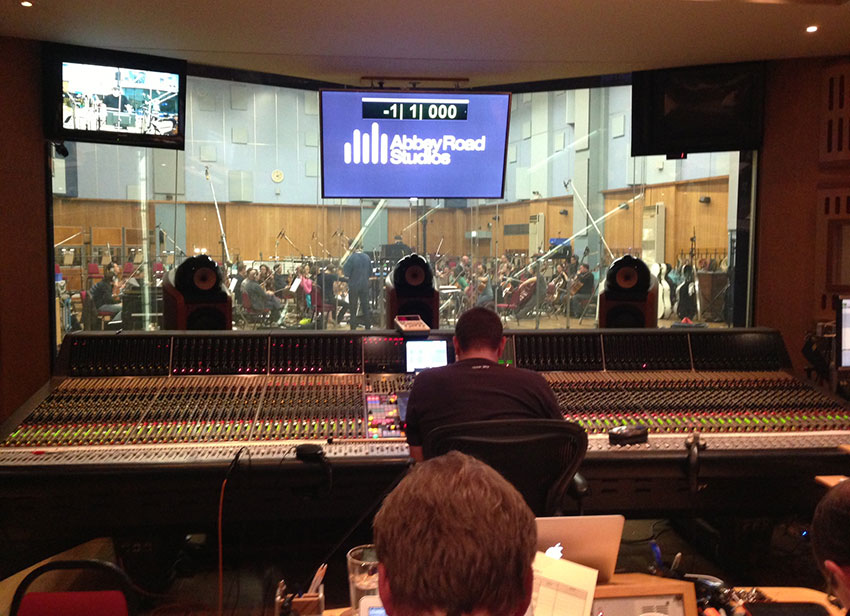
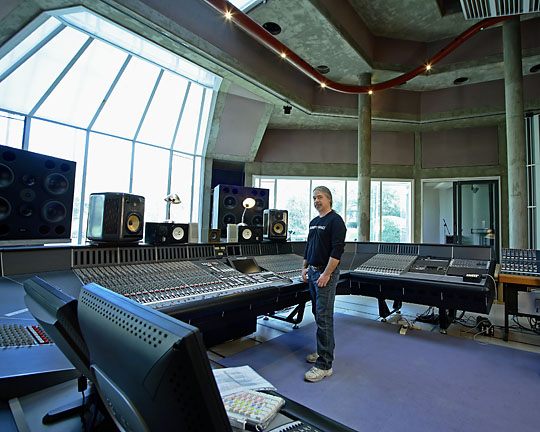
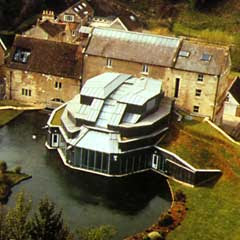
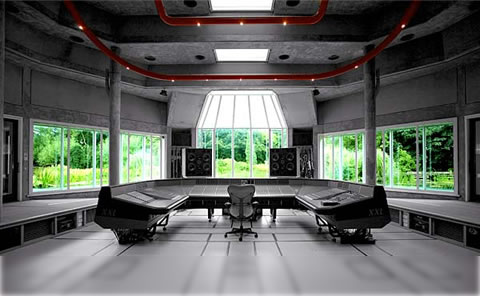

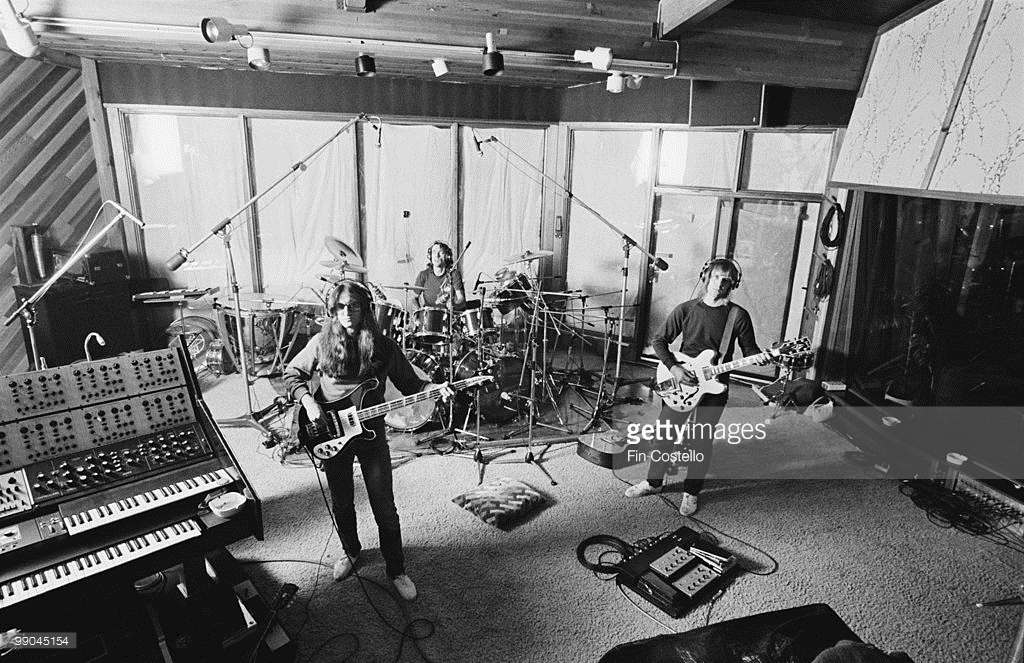
Keep Tracking is a must read book!
http://www.audio-is…